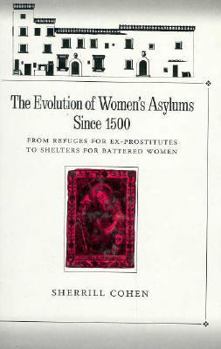The Evolution of Women's Asylums Since 1500: From Refuges for Ex-Prostitutes to Shelters for Battered Women (Studies in the History of Sexuality)
Select Format
Select Condition 
Book Overview
The sixteenth and seventeenth centuries in Catholic Europe witnessed the growth of new institutions designed to house repentant prostitutes and girls and women at risk of becoming prostitutes. This little-known surge in institution building arose out of the Catholic reform movement and the Counter-Reformation. Cohen presents a portrait of life in three such institutions for women in the Italian cities of Florence and Pistoia. These institutions represented a new residential option for women beyond the traditional options of marriage or convent. They were "asylums" in a dual sense, operating as both sites of internment and shelters from harm. Cohen demonstrates how the multifunctional women's institutions of the early modern era served as the prototypes for a variety of asylums for women that emerged in later centuries--including hostels, homes for unwed mothers, and battered women's shelters. In a major revision of the historiography of social institutions, Cohen argues that the women's institutions of early modern Europe played a pioneering role in developing techniques and institutional forms in the fields of corrections and social welfare.
Format:Hardcover
Language:English
ISBN:0195051645
ISBN13:9780195051643
Release Date:September 1992
Publisher:Oxford University Press
Length:288 Pages
Weight:1.30 lbs.
Dimensions:9.6" x 1.1" x 6.5"
Customer Reviews
0 rating





